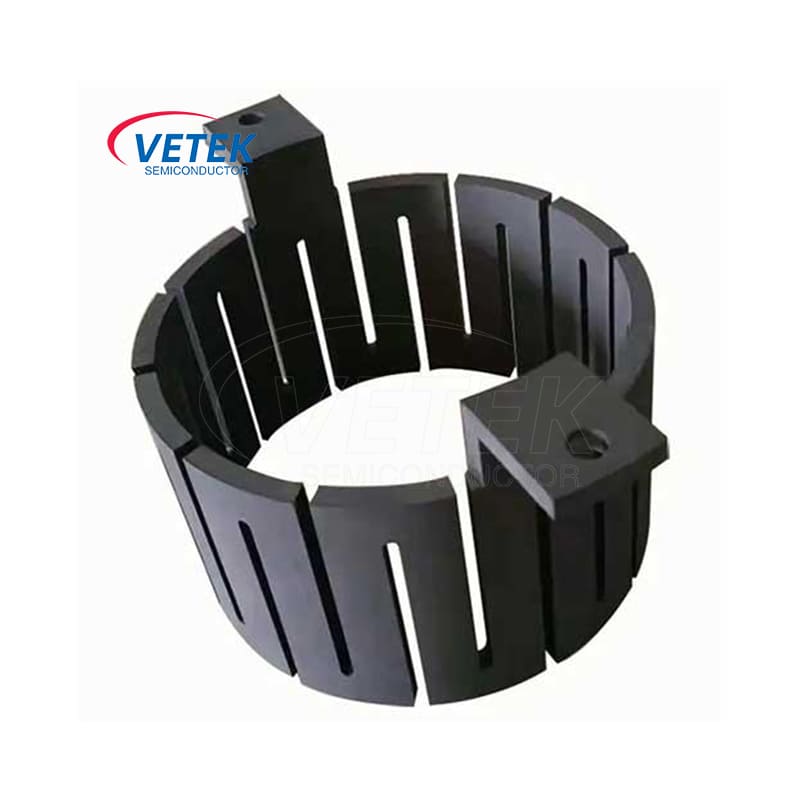What Are the Benefits of Silicon Carbide Coatings in Modern Manufacturing?
2024-12-20
Silicon carbide (SiC) is widely recognized for its exceptional properties, including high thermal conductivity, hardness, and resistance to wear and corrosion. These attributes make it a material of choice for a variety of advanced manufacturing applications. One of the most promising uses of silicon carbide is in the form of coatings. But why is silicon carbide coating so valuable, and how can it benefit industries ranging from aerospace to automotive?
In this blog, we'll explore the advantages of silicon carbide coatings, their common applications, and how they contribute to enhancing the performance and durability of materials in demanding environments.
What is Silicon Carbide Coating?
A silicon carbide coating is a thin layer of silicon carbide material that is applied to a substrate (typically metal or ceramic) to enhance its properties. Silicon carbide itself is a compound made up of silicon and carbon and is known for its strength, thermal stability, and resistance to corrosion and oxidation.
The coating process involves applying silicon carbide to a surface through methods like chemical vapor deposition (CVD), physical vapor deposition (PVD), or slurry coating. Once applied, the coating significantly improves the performance of the underlying material, especially in harsh or high-temperature environments.
Why is Silicon Carbide Used for Coatings?
Silicon carbide coatings offer several critical benefits that make them ideal for use in industries where performance under extreme conditions is necessary. Some of these benefits include:
Exceptional Hardness and Wear Resistance
Silicon carbide is one of the hardest materials known, second only to diamonds. When used as a coating, it provides a tough, abrasion-resistant surface that can extend the life of components subjected to mechanical wear. This makes SiC coatings ideal for use in parts such as turbine blades, pumps, and valves, which experience constant friction or abrasive environments.
High Thermal Conductivity and Stability
Silicon carbide has an outstanding ability to conduct heat, making it an excellent choice for coatings in high-temperature applications. The high thermal conductivity helps dissipate heat efficiently, preventing overheating and ensuring that components maintain optimal operating temperatures. Additionally, SiC coatings can withstand extreme temperatures without degradation, making them suitable for industries like aerospace and power generation.
Corrosion and Oxidation Resistance
Silicon carbide is highly resistant to corrosion and oxidation, particularly in aggressive chemical environments. Coating parts with SiC protects them from the damaging effects of exposure to acids, alkalis, and other corrosive substances. This makes SiC coatings ideal for industries such as chemical processing, semiconductor manufacturing, and energy production.
Electrical Insulation
Silicon carbide coatings provide electrical insulation properties, which are valuable in applications where electrical conductivity needs to be minimized or controlled. The insulating nature of SiC coatings is crucial in the electronics and power distribution industries, where preventing unwanted electrical currents is necessary for safety and system stability.
Key Applications of Silicon Carbide Coatings
Aerospace and Aircraft Components
In the aerospace industry, components like turbine blades, rocket nozzles, and heat shields must endure extreme temperatures, high speeds, and corrosive environments. Silicon carbide coatings are ideal for protecting these components from the harsh conditions they face. The coatings improve the thermal and mechanical properties of the parts, allowing them to operate more efficiently and last longer, which is critical for safety and cost-effectiveness in aerospace applications.
Automotive Industry
Silicon carbide coatings are also widely used in the automotive industry, particularly in high-performance engines, brake systems, and exhaust components. The coatings enhance the durability of engine parts, protect against wear from friction, and help with heat dissipation. For example, SiC-coated brake rotors can offer improved performance in high-speed braking scenarios, contributing to better safety and reduced wear over time.
Power Generation and Nuclear Industry
In power generation, particularly in nuclear reactors and turbine systems, parts are often exposed to high temperatures, radiation, and corrosive substances. Silicon carbide coatings are used to protect critical components like reactor cores, heat exchangers, and cooling systems. The coatings offer superior resistance to both radiation damage and corrosion, ensuring that these components operate reliably over long periods.
Semiconductor Manufacturing
Silicon carbide is an essential material in the semiconductor industry, and when used as a coating, it plays a crucial role in improving the performance of semiconductor wafers and equipment. The high thermal conductivity of SiC coatings helps in heat management, while its hardness ensures that delicate equipment is protected from wear during the manufacturing process.
Medical Devices
In medical devices, particularly those used in orthopedic and dental applications, silicon carbide coatings are increasingly being used for their biocompatibility, hardness, and wear resistance. For example, SiC coatings on prosthetic joints can improve their longevity and reduce wear, making them more effective in long-term patient care.
Chemical Processing Equipment
Equipment used in chemical processing, such as reactors, pumps, and valves, often comes into contact with aggressive chemicals that can cause corrosion or degradation over time. Silicon carbide coatings offer superior protection in these environments, helping to prevent material failure and reduce maintenance costs.
How Do Silicon Carbide Coatings Improve Performance?
Increased Durability
By providing a wear-resistant surface, SiC coatings dramatically increase the service life of critical components. Parts exposed to harsh environments, such as machinery parts in mining or chemical industries, experience less wear and tear, leading to reduced downtime and lower replacement costs.
Enhanced Efficiency
In industries such as aerospace and automotive, the thermal management capabilities of silicon carbide coatings help keep systems running at optimal temperatures, preventing overheating and improving the overall efficiency of the systems. The reduction of heat buildup helps improve performance and energy savings.
Cost-Effectiveness
Although applying silicon carbide coatings can be an initial investment, the long-term cost benefits are significant. The increased longevity and reduced need for maintenance or replacements lead to substantial savings. In industries where downtime is costly, such as power generation or aerospace, the enhanced reliability of SiC-coated parts is a key benefit.
Environmental Impact
Silicon carbide is highly stable and resistant to corrosion, meaning that parts coated with SiC can withstand extreme conditions without deteriorating. This can help reduce waste, as components are more likely to perform for longer periods without needing to be replaced, thus contributing to sustainability in manufacturing.
Conclusion: Is Silicon Carbide Coating Worth the Investment?
Silicon carbide coatings offer a wide range of benefits, from improving the durability and performance of critical components to enhancing safety and reducing maintenance costs. Whether in aerospace, automotive, power generation, or chemical processing, the unique properties of silicon carbide—such as its hardness, thermal conductivity, and corrosion resistance—make it an indispensable material for industries that operate under extreme conditions.
Investing in silicon carbide coatings can lead to significant long-term cost savings, enhanced operational efficiency, and increased safety. For industries dealing with high temperatures, wear, and chemical exposure, SiC coatings are an invaluable solution that can help keep systems running at their best for years to come.



